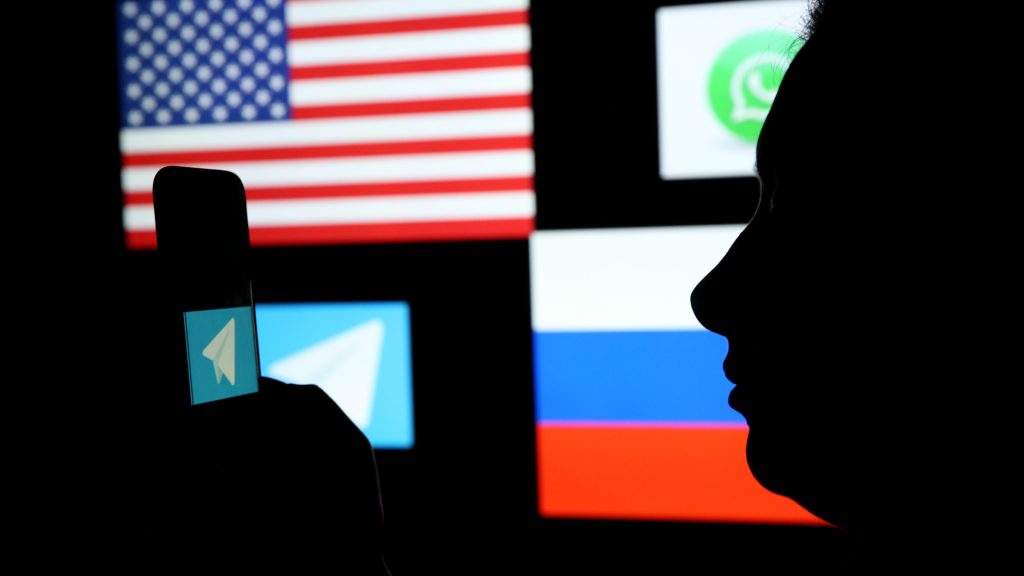Russia curbs WhatsApp, Telegram app calls; pushes for homegrown platforms

Russia has moved to limit voice calls on WhatsApp and Telegram. It’s accusing the services of refusing to share data with authorities in cases involving fraud, sabotage and terrorism.
Roskomnadzor, the state telecom regulator, said scams have shifted to these platforms after earlier measures stopped spoofed calls on traditional phone networks.
Interfax reported that Roskomnadzor said the restrictions apply only to voice calls — not to text messages or other functionality. Reuters separately cited officials stating that the limits will be lifted if the platforms establish local legal entities, comply with Russian legislation and cooperate with authorities.
How the companies responded
Meta-owned WhatsApp rejected Russia’s claims, saying it remains committed to secure, encrypted communication. It also accused authorities of trying to steer users toward less secure, government-monitored platforms.
The company said it has blocked more than 6.8 million accounts tied to scams this year. It also recently introduced tools such as silencing unknown callers.
According to Reuters, Telegram told Russia’s RBC it was resisting calls for violence and fraud on the platform, with moderators using AI tools to monitor public areas and remove millions of malicious messages daily. The Washington Post noted that in 2018, Moscow’s attempt to block Telegram after the company refused to give security services access to encrypted messages was largely ineffective.
New law targets online searches
The call restrictions come shortly after lawmakers approved legislation expanding penalties for accessing banned “extremist materials.” Starting in September, authorities can fine people who deliberately search for such content, even if they are using a virtual private network.
Officials say Russia’s registry of extremist materials contains about 5,500 entries, including LGBT advocacy and propaganda from al-Qaeda. The starting fine for individuals is roughly $65, with higher penalties for promoting tools that help people circumvent blocks.
“The main focus is on regulating providers. There is no plan for mass punishment of users,” said Russian representative Artem Sheikin, one of the bill’s sponsors.
Russian push for homegrown replacements
Since its 2022 invasion of Ukraine, Moscow has tightened controls over online spaces. It has blocked or throttled Western platforms such as Facebook, Instagram, YouTube and X. Roughly half of Russians are unfamiliar with VPN use, leading more people toward domestic platforms where state-approved information dominates.
In August, officials promoted “Max,” a government-managed “super app” created by VK, the social media company formerly known as VKontakte. Activists and analysts compare the service to China’s WeChat, noting it blends messaging with banking, travel bookings, and other functions under closer state oversight.
VK, whose chief executive is senior Kremlin adviser Sergei Kiriyenko’s son, has also rolled out other domestic services. These include a video platform positioned to replace YouTube. Authorities describe these efforts as part of a strategy to reduce reliance on foreign technology and strengthen what they call “digital sovereignty.”
Putin calls for state services to move to Russian apps
Russian President Vladimir Putin has supported the development of a government-run messaging platform linked to official online services. Critics warn that such a system could track users and aid censorship.
According to Shadaev Maksut Igorevich, the Minister of Digital Development, Russian-made platforms already dominate in areas such as search, online video and social networking. About 80% of Russian adults are registered on domestic social networks.
The ministry has also pointed to the launch of a new VK-built messenger intended to rival foreign competitors. The messenger will offer encrypted calls along with tools for school communications, banking and government services.
In June, Putin said, “I ask you to purposefully organize work to support the Russian messenger, and for this, the services provided by various departments, financial institutions, and so on, need to be transferred to this platform. This is extremely important.”





